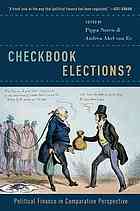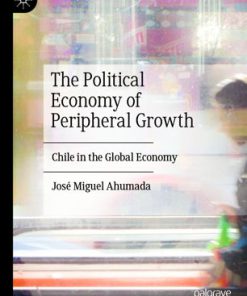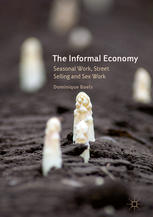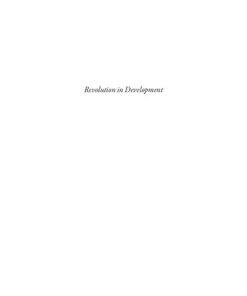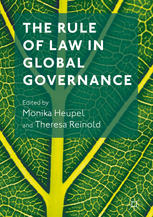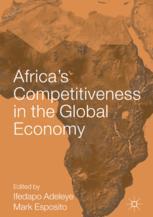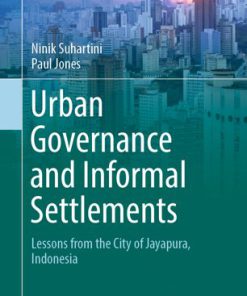The Informal Economy in Global Perspective: Varieties of Governance 1st Edition Abel Polese
$50.00 Original price was: $50.00.$25.00Current price is: $25.00.
This completed downloadable of The Informal Economy in Global Perspective: Varieties of Governance 1st Edition Abel Polese.
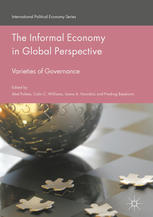
Instant downloaded The Informal Economy in Global Perspective: Varieties of Governance 1st Edition Abel Polese pdf docx epub after payment.
Product details:
- ISBN-10 : 331940931X
- ISBN-13 : 9783319409313
- Author : Abel Polese
Table of contents:
Introduction: Informal Economies as Varieties of Governance
Informality and Governance
Structure of the Book and Overview of the Chapters
References
Why Read Informality in a Substantivist Manner? On the Embeddedness of the Soviet Second Econo
Good Socialist and Bad Post-Socialist Informality
How Formalist Readings of Informality Prevail
Substantivist Readings of Markets and Embeddedness
Substantivist Contributions to Understanding (Post-)Soviet Informality
Reading the “Second Economy” in Soviet Georgia
Understanding the Reaction Against Marketisation in Post-Revolution Georgia
Political and Theoretical Implications of the Substantivist Reading
Notes
References
Informal Economy: The Invisible Hand of Government
Introduction
Government’s Intervention and the Informal Economy
Informal Economy: The Empirical Analysis1
Data and Pre-Estimation Analysis
Informal Economy: Long-Run Trends and Short-Run Deviations
Iran’s Informal Economy: Looking Back at Historical Events
Conclusion
Note
Appendix I
Government Interventions’ Indices
Appendix II
Testing the Existence of Cointegration Vectors
References
Estimating the Size of the Croatian Shadow Economy: A Labour Approach
Introduction
Literature Review
Methodology
Data Analysis and Results
Conclusion
References
Informal Employment and Earnings Determination in Ukraine
Introduction
Literature Review
The Case of Ukraine: Data Sources, Definition, Methodology
Data
Defining Informal Employment for the Ukrainian Labour Market
Methodology
Results
Personal Background Characteristics
The Mincer Model
Concluding Remarks
Note
Appendix
References
Approaching Informality: Rear-Mirror Methodology and Ethnographic Inquiry
Introduction
Moral Ambiguity and Open Secrecy
Rear-Mirror Methodology and Open Secrets
Positionality
Partial Insider Status
Naïve Newcomer Role
Socialization and Rapport
Data Collection Methods
Conclusion
Notes
References
Explaining the Informal Economy in Post-Communist Societies: A Study of the Asymmetry Betwee
Introduction
Explaining the Informal Economy in Post-Communist Economies
Data and Methodology
Findings
Discussion and Conclusions
Appendix
References
Post-Socialist Informality Rural Style: Impressions from Bulgaria
Introduction
Rurality and Post-Socialism
Methodology and Data
Informality in Rural Areas
Informality and Rural Start-Ups
Informality and Growth of Rural Businesses
Concluding Remarks
References
Exploring the Practice of Making Informal Payments in the Health Sector: Some Lessons from Gree
Background
Methodology
Results
Conclusions
Appendix
References
Violent Pressure on Business and the Size of the Informal Economy: Evidence from Russian Regio
Introduction
Insecure Property Rights, Business-Related Violence and the Informal Economy in Russia
Data and Methodology
Results
Conclusion
Notes
References
Labor Informality in Mexico: An Indicator Analysis
Introduction
Review of the Literature on Informality
Theoretical Approaches: An Explanation
Empirical Literature: Some Findings
Indicators of Economic Performance and Informality
Logistic Regression Analysis: Discussion of Results
Conclusions
Notes
References
The Interplay Between Formal and Informal Firms and Its Implications on Jobs in Francophone Afri
Introduction
Methodology
Quantitative Data
Qualitative Data
A Qualitative Assessment of the Interplay Between Formal and Informal Actors in Africa
The Interactions Between the Formal and Informal in Africa
The Determinants of the Interrelations Between Formal and Informal Firms: An Econometric Analys
Conclusion
Note
References
Governing Informal Payments by Market in the Chinese Healthcare System
Introduction
Competition and “Patients Choose Doctors”
Differential Pricing and “Operation by Nomination”
Conclusion
Note
References
Social Mechanisms of the Counterpublic Sphere: A Case of a Coffee Farmers’ Cooperative in LA
Introduction
The Historical Background of Coffee Farmers on the Bolaven Plateau
From Shifting Cultivation to Coffee Planting
The Horizontal Connection Among the Hueaan as a Household Unit
The Vertical Connection Between Farmers and Middlemen
The Cooperative as a New Coffee Buyer
The Public Sphere Space in the Rural Area
The Revival of the Cooperative
The Profiles of New JCFC Representatives
The General Meeting as the Political Arena
Connections Within the Farming Society
Changes in the Number of the Members Who Sell Their Coffee to the Cooperative
A Case of KP Village: From the Agreement Among the Members to the Personal Networks
The Connections Beyond the Farming Society
Negotiation with the Governmental Organisation
Negotiation with the Large Export Company
Conclusion
Notes
References
Formalisation of Entrepreneurship in the Informal Economy in Sub-Saharan Africa and the Role o
Introduction
Formal Institutions and Informal Entrepreneurship
Formalisation and Its Discontents Among Informal Entrepreneurs
Informal Workers and the Regulatory System
Conclusion
Note
References
Evidence on Corruption in Public Procurements in Healthcare and the Implications for Policy
Introduction
Corruption and Public Procurements
Buyer and Seller Informal Relationships and Corruption
Empirical Results
Types of Corruption
Consequences of Corruption
Problem-Solving Strategies
Evidence from Europe
Evidence from North and South America
Evidence from Asia and Africa
Discussion and Conclusions
People also search:
why is informal economy important
is informal economy good or bad
should the government influence the economy
what does informal economy mean
what is the informal sector or underground economy quizlet
You may also like…
Uncategorized
Checkbook elections? : political finance in comparative perspective 1st Edition Abel Van Es
Politics & Philosophy - Government & Politics
Politics & Philosophy
Politics & Philosophy
The Rule of Law in Global Governance 1st Edition Monika Heupel
Politics & Philosophy




